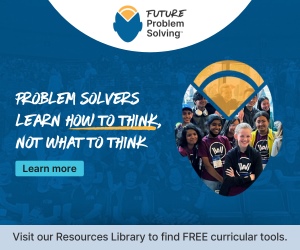LGBTQ Diversity Toolbox for Teachers - Resources
References
- Briggs, C. J., Reis, S. M., & Sullivan, E. E. (2008). A national view of promising programs and practices for culturally, linguistically, and ethnically diverse gifted and talented students. Gifted Child Quarterly, 52, 131–145.
- Cianciotto, J., & Cahill, S. (2003). Education policy: Issues affecting lesbian, gay, bisexual, and transgender youth. New York, NY: The National Gay and Lesbian Task Force Policy Institute. Retrieved from http://www.thetaskforce.org/static_html/downloads/reports/reports/EducationPolicy.pdf
- Cross, T. (2013). Suicide among gifted children and adolescents. Waco, TX: Prufrock Press.
- Danuta Walters, S. (2014). The tolerance trap: How god, genes, and good intentions are sabotaging gay equality. New York, NY: New York University Press.
- Friedrichs, T. P. (2012). Counseling gifted GLBT students along paths to freedom. In T. L. Cross & J. R. Cross (Eds.), Handbook for counselors serving students with gifts and talents (pp. 153–174). Waco, TX: Prufrock Press.
- Friedrichs, T., Manzella, T., & Seney, R. (2017). Needs and approaches for educators and parents of gifted gay, lesbian, bisexual, and transgender students. Washington, DC: NAGC.
- Gay, Lesbian, Straight Education Network (GLSEN). (2016). GLSEN 2015 National School Climate Survey: Executive Summary. Retrieved from https://www.glsen.org/article/2015-national-school-climate-survey
- Keener, A. G. (2013). G-squared: Supporting your gifted LGBT student. SENGVine, 105. Retrieved from http://sengifted.org/g-squared-supporting-your-gifted-lgbt-student/
- Manzella, T. R. (2012). Twice other: Cultural challenges faced by gifted and GLBTQ adolescents (Unpublished master's thesis). Metropolitan State University, St. Paul, MN.
- Manzella, T. R. (2014, July/August). A parent’s perspective: Gifted and GLBTQ. 2e: Twice Exceptional Newsletter, 1–3.
- Pearson, J., Muller, C., & Wilkinson, L. (2007). Adolescent same-sex attraction and academic outcomes: The role of school attachment and engagement. Social Problems, 54, 523–542.
- Peterson, J. S., & Rischar, H. (2000). Gifted and gay: A study of the adolescent experience. Gifted Child Quarterly, 44, 149–164. National Association for Gifted Children. (2015). Supporting gifted students with diverse sexual orientations and gender identities. Retrieved from https://www.nagc.org/news/supporting-gifted-students-with-diverse-sexual-orientations-and-gender-identities
- Sedillo P. J. (2013). A retrospective study of gay gifted, young adult males’ perceptions of giftedness and suicide (Doctoral Dissertation). Retrieved from Proquest. (UMI No. 3601219).
- Sedillo P. J. (2015) Gay gifted adolescent suicide and suicidal ideation literature: Research barriers and limitations. Gifted Child Today, 38, 114–120.
- Sedillo, P. J. (2016, November). A response to the six social/emotional issues for Gifted LGBTQ students. Teaching for High Potential, 7. Southern Poverty Law Review. (2017). Tips for teachers: Ally yourself with LGBT students. Retrieved from http://www.tolerance.org/toolkit/tips-teachers-ally-yourself-lgbt-students
- Treat, A. R. (2008). Beyond analysis by gender: Overexcitability dimensions of sexually diverse populations and implications for gifted education (Doctoral dissertation). Retrieved from Proquest. (UMI No. 3344606)
- Treat, A. R. (2016, November). Gifted LGBTQ social-emotional issues. Teaching for High Potential, 6–7.
- Whittenburg, B., & Treat, A. R. (2009). Shared characteristics of gifted and sexually diverse youth. In N. L. Hafenstein & J. A. Castellano (Eds.), Perspectives in gifted education: Diverse gifted learners (Vol. 4, pp. 130–165). Denver, CO: University of Denver.
Resources
- Cohn, S. J. (2003). The gay gifted learner: Facing the challenge of homophobia and antihomosexual bias in schools. In J. A. Castellano (Ed.), Special populations in gifted education: Working with diverse gifted learners (pp. 123–149). Boston, MA: Allyn & Bacon.
- College Choice. (2017). 50 best colleges for LGBTQ students. Retrieved from http://www.collegechoice.net/rankings/50-best-lgbt-friendly-colleges-and-universities/
- Cross, T. L., Gust-Brey, K., & Ball, P. B. (2002). A psychological autopsy of the suicide of an academically gifted student: Researchers’ and parents’ perspectives. Gifted Child Quarterly, 46, 247–264.
- Friedrichs, T., Manzella, T., & Seney, R. (2017). Needs and approaches for educators and parents of gifted gay, lesbian, bisexual, and transgender students. Washington, DC: NAGC.
- Kosciw, J. G., Greytak, E. A., Bartkiewicz, M. J., Boesen, M. J., & Palmer, N. A. (2012). The 2011 national school climate survey: The experiences of lesbian, gay, bisexual and transgender youth in our nation's schools. New York, NY: Gay, Lesbian and Straight Education Network.
- Madrone, K.H. (2017). 12 ways to make your classroom safe for LGBTQ students. Retrieved from https://freespiritpublishingblog.com/2017/08/21/12-ways-to-make-your-classroom-safe-for-lgbtq-students/
- Manzella, T. (n.d.). G2 youth advocate. Retrieved from http://gsquaredyouthadvocate.com/
- Manzella, T. R. (2014, July/August). A parent’s perspective: Gifted and GLBTQ. 2e: Twice Exceptional Newsletter, 1–3.
- Manzella, T. R. (2014, October). Home for the holidays: Reducing the stress for your gifted GLBTQ kid. Parenting for High Potential, 2–3. Peterson, J. S., & Ray, K. E. (2007). Bullying among the gifted: The subjective experience. Gifted Child Quarterly, 50, 252–269.
- Treat, A.R., & Whittenburg, B. (2006). Gifted gay, lesbian, bisexual, and transgender annotated bibliography: A resource for educators of gifted GLBT students. Journal of Secondary Gifted Education, 17(4), 230–243.
Web Links
-
Gay, Lesbian and Straight Education Network (GLSEN): GLSEN’s goal is to ensure that each member of every school community is valued and respected regardless of sexual orientation or gender identity/expression. https://www.glsen.org/article/2015-national-school-climate-survey
-
GSA Network: Connects school-based GSAs to each other and community resources through peer support, leadership development, and training. https://gsanetwork.org/
-
Students and Gender Identity Guide for Schools: From USC Rossier's Online School Counseling Master's Program to support conversations about gender identity in classrooms


